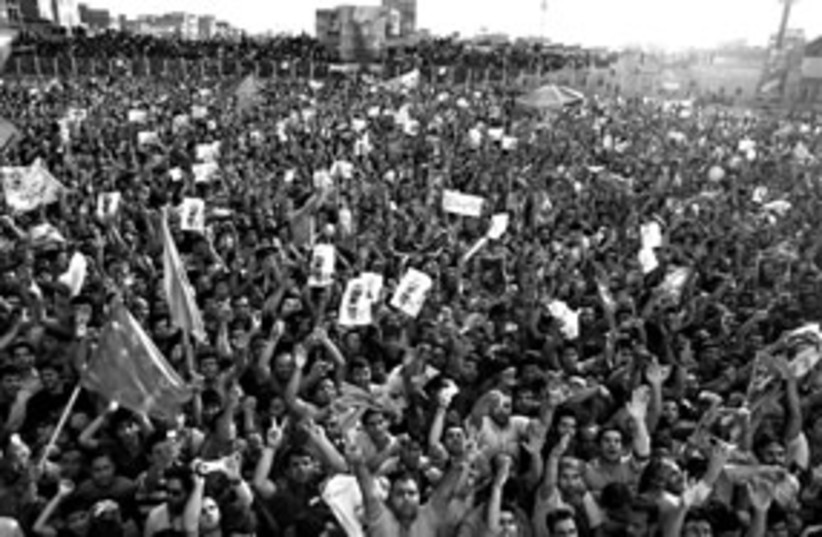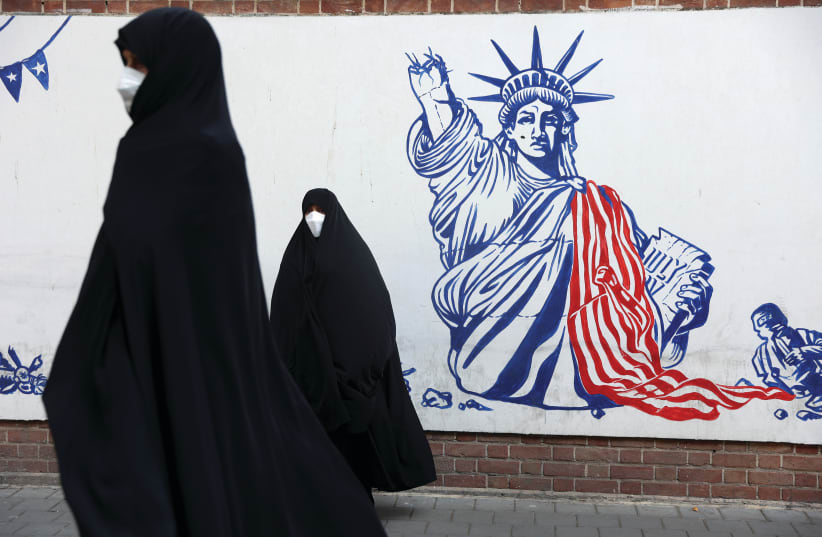The deputy interior minister of the Islamic Republic of Iran, Taghi Rostamvandi, outlined factors on Sunday during a speech that could shake the foundations of the theocratic state.
The Islamic Republic News Agency, or IRNA, the regime-controlled news agency of the Islamic Republic of Iran, reported that Rostamvandi warned that Iranians are seeking with greater frequency "fundamental changes in the country," and a secular government and way of life.
Rostamvandi delivered his remarks at a conference in Tehran titled the "Second National Conference on Social Harm from the Perspective of Islam."

He said that “The index of people’s desire to protest is very important. We should conduct a socio-political assessment when people come on to the streets showing intense forms of protests because those protests will break the norms.”
Rostamvandi added that "This will be extremely alarming if we find out that as a result of the incompetency of the government, people feel that the religious government is incapable of solving the country's problems and that a secular government can be effective.”
Revolts against the clerical state have punctutated Iran since the 1979 Islamic revolution, including the widespread Green movement protests in 2009 and massive unrest 2019.
The deputy minister alluded to the apparent effect of international sanctions on Iran’s struggling economy to prevent the clerical regime from building a nuclear weapons device: “The public’s patience is wearing very thin as economic pressures continue to mount. We should also sound the alarm as more people are leaning toward a secular government due to ineptitude or mismanagement. This is very dangerous.”
The London-based news organization Iran International wrote in response to Rostamvandi’s speech that “According to Rostamvandi demand for fundamental changes in Iran are on the rise.The official did not explain how four decades of Shiite clerical rule have made the people turn their backs to the Islamic Republic government.”
The outlet cited a study published in September that revealed a mere “32 percent of Iranians identify themselves as ‘Shiite Muslim,’ and nearly half of the population have moved on from religiosity and are ‘atheists."’
Iran International said that “In December 2017, an adviser to the Roads and Transportation Minister said that 5.1 million Iranians, mainly educated individuals and skilled workers, were in the waiting list for immigration to Australia and Canada.”
The Islamic Republic president Ebrahim Raisi recently declared that "Western cultures and political systems are not attractive for the Iranian youths. No young Iranian would want to live in a Western cultural atmosphere.”
Separately, Iran International on Tuesday reported that Fereydoun Abbasi, the former head of the Atomic Energy Organization of Iran (AEOI) and a current member of the Parliament Energy Committee in the parliament of the Islamic Republic, said "Instead of the thousand wounds they want to inflict on the body of the Islamic Republic, we must inflict 50,000 wounds on them," in connection with Israel, adding that "The Resistance Front and the Islamic world must break the siege of Gaza and liberate the Golan Heights, then we will definitely get an answer in the negotiations."
